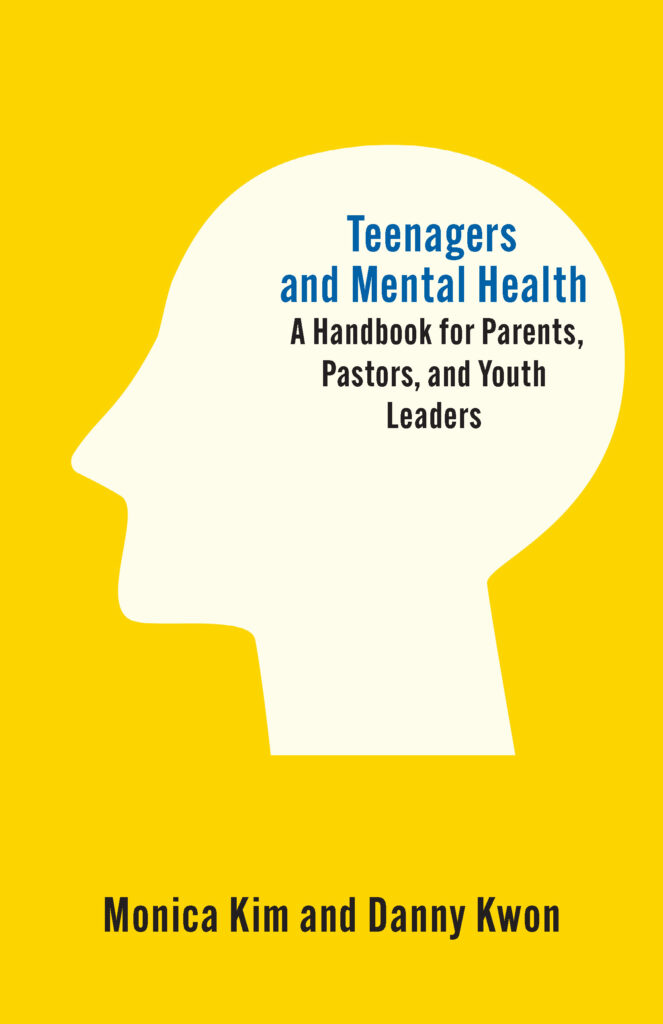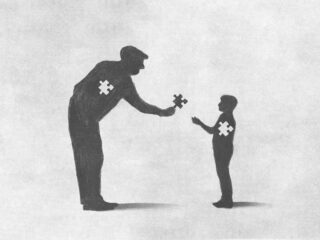Before beginning my counseling ministry as a biblical counselor and licensed psychologist, I served as the director of children and youth ministry at a church while completing my seminary degree (MAR). Soon afterward, I married my husband, Danny, who has been a youth and family pastor for thirty years. Over the course of our ministry, we have witnessed the rising tide of mental health struggles among teenagers and the impact on the families who love them.
In both the church and the counseling ministry, as we listened to teenagers share about their most pressing issues, it became common to hear them express their experience of crippling anxiety and deep sadness. So we were not surprised to hear teen mental health described as an epidemic. In the past decade, the number of teens reporting poor mental health has risen sharply. According to the CDC, approximately 40 percent of high school students indicated struggling with feelings of sadness and hopelessness, and 20 percent seriously considered attempting suicide.[1] Also, according to one of the largest studies of teenagers (13–18 years old) by the National Comorbidity Survey Replication, Adolescent Supplement (NCS-A) anxiety disorders were the most common condition (31.9 percent), followed by behavior disorders (e.g., ADHD; 19.1 percent), mood disorders (e.g., depression; 14.3 percent), and substance use disorders (11.4 percent).[2]
Start with a Deep Rootedness in Shalom
As parents, pastors, and youth leaders walking alongside teenagers in their mental health struggles, we often find ourselves feeling the weight of their emotional, psychological, behavioral, and spiritual pain. In that discomfort, we might be tempted either to avoid the topic—believing it’s beyond our training or understanding—or to rush in to confront perceived spiritual roots of sin or deceit. Either extreme response can leave a teenager feeling unseen, misunderstood, and alone.
Instead, those walking alongside struggling teenagers are called to engage them with compassion and steadfastness, becoming a secure base and haven. As such, we are called to deepen our roots in God’s shalom (Hebrew for peace)which has been restored to us through Christ! When we are rooted in the good news, our own souls can be well even as we walk alongside teenagers in their unwellness.
According to Hebrew lexicons, not only is shalom generally translated as “peace,” but the term also carries the rich meanings of completeness, harmony, and well-being.Shalom was what God intended for the world (Genesis 1:31), where humanity was in right relationship with God (Genesis 2:7–8), with one another (Genesis 2:18, 24, 25), and with nature (Genesis 1:28–31).
Sin—the fall (Genesis 3)—fractured this shalom. Mental health issues in teenagers, a fracturing of well-being, are a result of this brokenness—a disruption of completeness, harmony, and well-being. This disruption is ugly, messy, and very complicated. Mental health issues are linked to the fracturing of the environmental, social, developmental, physical, psychological, personality, and heart.
But the good news is that shalom finds its fulfillment in Jesus Christ. When Jesus was born, the angels proclaimed, “Glory to God in the highest and on earth peace among those with whom he is pleased!” (Luke 2:14 ESV). The prophecy of Isaiah 9:6–7, which foretold the coming King, this Prince of Peace, who would rule with justice and establish lasting peace, was fulfilled in Jesus. Jesus ushered in the kingdom of God, declaring, “The time has come,” he said. “The kingdom of God has come near. Repent and believe the good news!” (Mark 1:15 NIV). Through his death, resurrection, ascension, and the sending of the Holy Spirit, the kingdom of God—and with it, shalom—is here now, as we await its ultimate fulfillment when Jesus returns.
Those who love teenagers and care for them must be rooted in this truth again and again and again, full of the assurance of the gospel, in order to rightly walk alongside teenagers in their pain.
Be Quick to Listen and Slow to Speak: Being with Them in Their Struggles
Because this shalom has come for us all, let us be quick to listen and slow to speak (James 1:19) as we come alongside teenagers. Listen to their account of what they are going through and reflect back:
“Tell me more.”
“What I heard from you is . . . ”
“It looks like the situation is . . . ”
Listen to how they feel, then acknowledge their emotions with compassion:
“That must be really painful.”
“You are worried; it makes sense.”
Collaborate on Action Plans: Let The Good Shepherd Lead
Because this shalom is deeply rooted in your heart, collaborate with teenagers on action plans and problem-solving rather than controlling or imposing one. We are called to bear one another’s burdens, and so fulfill the law of Christ (Galatians 6:2). Trust Jesus, the Good Shepherd, to lead you together, providing a better way. Together rely on the Lord—with all your hearts and lean not on your own understanding; acknowledge Jesus in all your action plans, and he will make straight your paths. (Proverbs 3:5–6).
Here are some questions that encourage collaborative discernment toward an action plan:
What have you tried before that helped you feel a little better?
What worked? What didn’t?
Would you like to try this or that?
How did that work for you?
Would you like some additional ideas?
It is only in Jesus that we can experience deep and lasting well-being. As we remain rooted in this gospel truth—God’s deep shalom—we can walk with teenagers not as those who have all the answers, but as those who incarnate his presence of peace, carrying it into their pain.
[1] Centers for Disease Control and Prevention . Youth Risk Behavior Survey Data Summary & Trends Report: 2013–2023 . U .S . Department of Health and Human Services, 2024
[2] Kathleen Ries Merikangas et al. “Lifetime prevalence of mental disorders in U.S. adolescents: results from the National Comorbidity Survey Replication–Adolescent Supplement (NCS-A).” Journal of the American Academy of Child and Adolescent Psychiatry vol. 49,10 (2010): 980-9. doi:10.1016/j.jaac.2010.05.017
Teenagers and mental Health
Teenagers and Mental Health is a comprehensive guide to better understanding the challenges adolescents face and outlines strategies for compassionate, gospel-centered care. Married coauthors Monica Kim, a licensed psychologist and biblical counselor and Danny Kwon, a veteran youth pastor, have extensive experience in working with struggling youth both professionally and as parents. They equip youth leaders, pastors, parents, and other caregivers to notice when a teen is having trouble and reach out to offer help.






